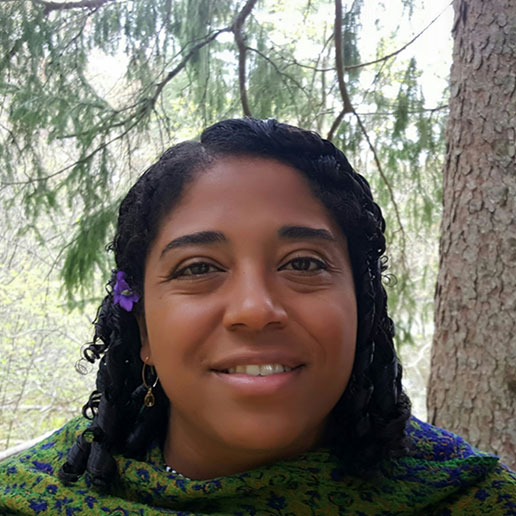
Poet/Author
she/her
Samara Cole Doyon is a second generation Haitian American and multi-generational Mainer–this state claiming half the roots of her family tree. She is a wife, mother, and teacher holding a BA in English from the University of Southern Maine and currently completing a Masters in Teaching and Learning.
She has been a regular contributor at Black Girl in Maine Media, has been featured in the Deep Water poetry column of the Portland Press Herald, and has authored children’s books Magnificent Homespun Brown (Tilbury House Publishers, January, 2020) and Magic Like That (Lee & Low Books, June 2021).
Talks
Embracing Our Magnificence as an Act of Resistance
A discussion based on my debut children’s book, Magnificent Homespun Brown, and how systematically marginalized people survive and transcend oppression through unapologetic self-love and jubilation.
President, Board of Directors, Abyssinian Meeting House
she/her
Pamela Cummings is President of the Board of Directors and Director of Education Programs for The Abyssinian Meeting House. She is also the writer of two books and the founder of A Walk Back in Time, a theatrical walk retracing the footsteps of enslaved people in Portland, Maine. She is proud mother of Lindsey Alston DAndrea and Douglas Alston.
Photo: PORTLAND, ME - Pam Cummings, the head of the Committee to Restore the Abyssinian, in the upstairs of the meeting house which is currently being restored. The historical place of worship built by African Americans in the 19th century fell into disarray and a committee to restore the building has been working toward the goal for 20 years. (Staff photo by Brianna Soukup/Staff Photographer)
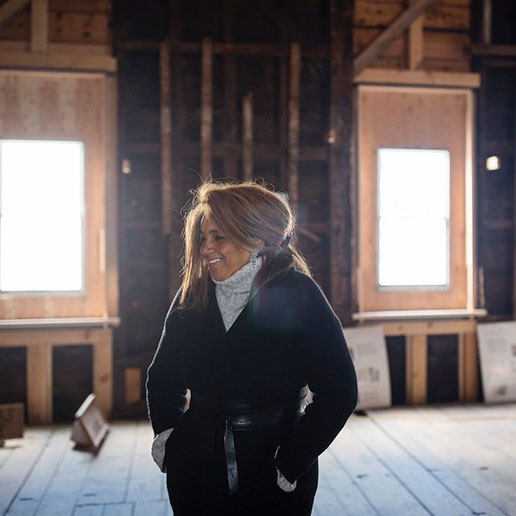
Talks
The Underground Railroad: Retracing the Tracks
An illustrious walk back in time to discuss the history of the Underground Railroad and its relevance and significance to Maine’s total and accurate history. Pamela explores the places that are hidden all around us in plain sight, each with its own story begging to be told and lessons waiting to be shared.
What’s in Your Hand?
Use readily available resources to create your underground railroad–your escape from slavery to freedom.
Founder and Executive Director, Atlantic Black Box
she/her
Meadow Dibble, Ph.D. is a researcher and antiracist historical recovery advocate organizing to surface New England’s suppressed narratives. In 2018 she founded Atlantic Black Box, a grassroots public history project that empowers communities throughout the Northeast to take up the critical work of researching and reckoning with the region’s complicity in the slave trade and the global economy of enslavement. Meadow serves as Project Lead on the Place Justice project in collaboration with the Permanent Commission on the Status of Racial, Indigenous, and Tribal Populations.
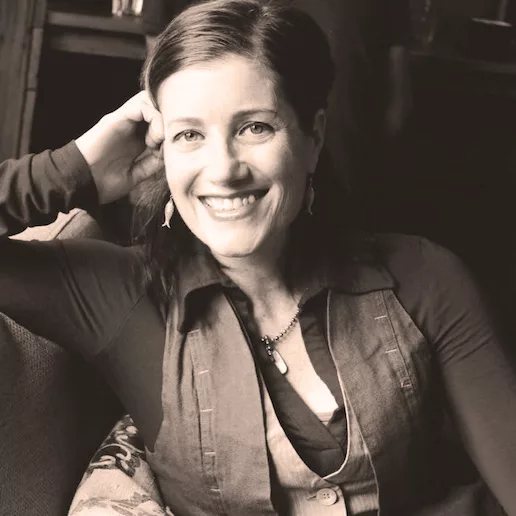
Talks
Whitewashing the Diseased Ship: New England’s Role in the Slave Trade
On August 1, 1819, a majestic Maine-built ship docked at Boston’s Long Wharf, completing a nearly year-long voyage to West Africa and the West Indies that only a few crew members were fortunate enough to survive. When customs officials descended into the hold to examine the precious cargo for which so many had died, what they found instead were clouds of mosquitoes playing host to a deadly yellow fever virus.
This dramatic story features a prominent Yankee sea captain, a tragedy on the high seas, a viral outbreak, a major political cover up, and a conspiracy of silence that has lasted two centuries surrounding New England’s involvement in the slave trade. Following these historical threads into the present day allows us to consider the ways in which our region’s suppressed history of complicity in slavery relates to our current national conversations about racial justice and healing
Hiding in Plain Sight: New England's Complicity in Slavery
New England has long suppressed the memory of its involvement in slavery, just as it has concealed or failed to center the stories of the region’s free and enslaved Black and Indigenous populations. How could we have gotten the story so wrong for so long? This interactive presentation will contrast the cherished narrative of Northern exceptionalism and innocence with recent scholarship that reveals a long history of exploitation with which our communities have barely begun to reckon.
Place Names in Wabanakik/Maine
Place names have a lot to teach us about our history, values, and present-day relationships with one another. Even when these names fade into the backdrop of our lives, they continue to inform our sense of place in subtle but important ways, communicating ideas about who belongs and what matters. Here in Maine, racist and problematic place names have long marred the landscape and continue to impact our communities. By examining trends in toponymy, we can gain insight into whose perspectives have been privileged and, by contrast, whose experiences have been dismissed and forgotten.
In this presentation, participants will gain foundational knowledge about Maine’s place names profile in relation to those of other states in New England and across the U.S. They will also learn to identify problematic place names in their area and develop approaches to understanding the historical context behind them. Together, we will explore ways to make the commemorative landscape more welcoming, inclusive, and reflective of the breadth of experiences of the people who have made these places what they are today.
President, Khmer Maine
he/him
Marpheen Chann is an author, thinker, advocate, and speaker on social justice, equity, and inclusion.
As a gay, first-generation Asian American born in California to a Cambodian refugee family and later adopted by an evangelical, white working-class family in Maine, Marpheen uses a mix of humor and storytelling to help people view topics such as diveristy, equity, inclusion, belonging, and justice through an intersectional and empathetic lens.
Marpheen Chann lives in Portland, Maine. He works in the nonprofit and advocacy sector and holds a bachelor’s degree in Political Science from the University of Southern Maine and a law degree from the University of Maine School of Law.
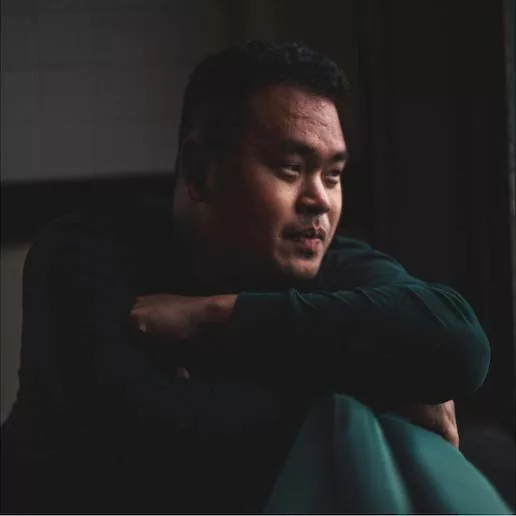
Talks
Welcome Home: My Journey Through Foster Care, Coming Out, and Reuniting with Family
Life is complicated and full of twists and turns. In “Welcome Home,” Marpheen shares his insights, lessons learned, and maybe a few laughs as he shares his story as a second-generation Cambodian American who went through foster care and adoption, struggled with fitting in and adapting to a white-majority community, and coming out as gay to his devoutly religious family.
The Empathy Effect: How to Have Conversations That Lead to Change
In a time of great division and anger nationwide, how do we go about changing hearts and minds when it comes to issues like diversity, inclusion, and equity? In a 40 minute presentation followed by Q+A discussion, Maine politician, author and civil rights advocate Marpheen Chann shares his personal story of growing up in Maine, coming out to his religious adoptive family, and the lessons he’s learned about how change can happen.
Moon in Full: A Modern-Day Coming-of-Age Book Talk
Moon in Full, a contemporary coming-of-age story, shines light on one young man’s search for truth and compassion in a complicated era as it unwinds the deep-seated challenges we all face finding our authentic voice and true identities. Author Marpheen Chann’s heart-warming journey weaves through housing projects and foster homes; into houses of worship and across college campuses; and playing out in working-class Maine where he struggles to find his place. Adopted into in a majority white community, Chann must reconcile his fears and secret longings as a young gay man with the devoutly religious beliefs of his new family. Chann, a second-generation Asian American, recounts what he has learned, what he has lost, and what he has found during his evolution from a hungry refugee’s son to religious youth to advocate for acceptance and equality.
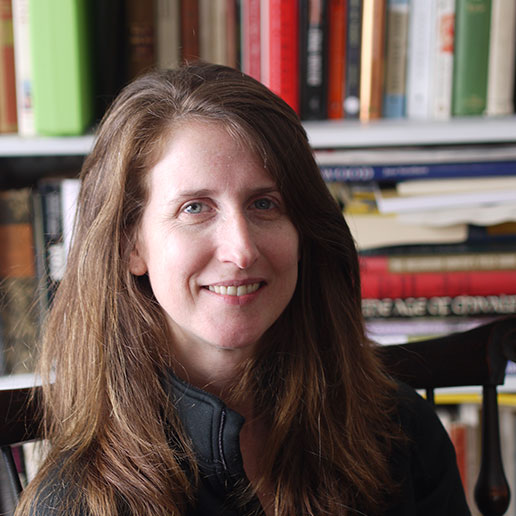
Historian, scholar, independent museum professional
she/her
Kate McBrien currently serves as Maine State Archivist, overseeing Maine State Government’s archives and records management programs. As curator of the award-winning exhibition “Malaga Island, Fragmented Lives,” McBrien is also an historian for the Malaga Island community. She previously held positions as Chief Curator and Director of Public Engagement at the Maine Historical Society and as the Curator of Historic Collections for the Maine State Museum.
Talks
Malaga Island
This presentation and discussion explores the true history of the community who lived on Malaga Island, off the coast of Phippsburg, Maine, in the late 1800s. The program examines the individuals who were part of this community and the state’s actions to evict them from their homes through the complex history of racism and eugenics in Maine.
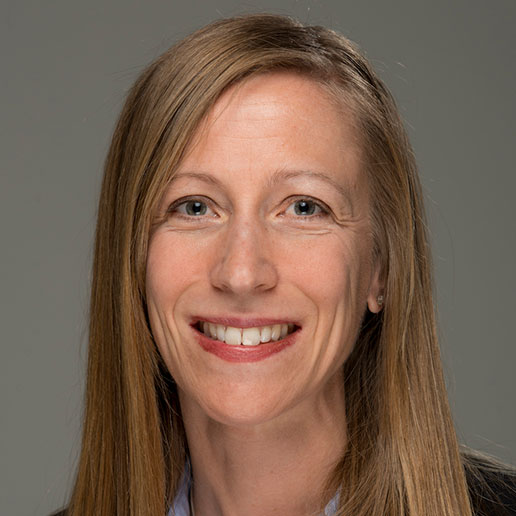
Assistant Professor of Media Studies, University of Maine
Judith E. Rosenbaum (Ph.D. Radboud University Nijmegen, The Netherlands) has taught undergraduate and graduate courses on the theoretical foundations of mass communication, strategic communication, race, gender and the media, research methods, as well as courses on social media and digital cultures.
Her research interests include the impact of digital media on daily life, political dialogue and meaning making on social media platforms, media selection and enjoyment, and health and media usage. Her latest book, Constructing Digital Cultures: Tweets, Trends, Race and Gender, was published by Lexington in 2018.
Talks
#BlackLivesMatter to #MeToo: Social Media’s Contribution to Democracy
Associate Professor of Africana Studies
she/her
Judith Casselberry is Associate Professor of Africana Studies at Bowdoin College. Her teaching and research focuses on Black American religious and cultural studies, social movements, and Black intellectual thought with particular attention to gender and liberation.
She is author of The Labor of Faith: Gender and Power in Black Apostolic Pentecostalism (Duke University Press, 2017) and co-editor of Spirit on the Move: Black Women and Pentecostalism in Africa and the Diaspora (Religious Cultures of African and African Diaspora People series with Duke University Press, 2019.
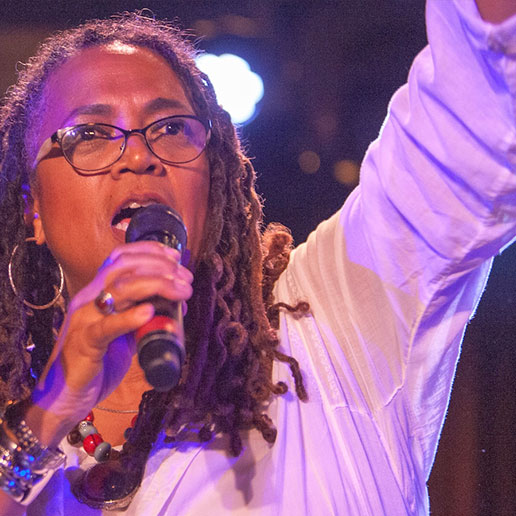
Talks
Afrofuturism in 19th century Black Spirituals
What can 19th century Black spirituals teach us about Afrofuturism? What if we fully embraced the insistence of the spirituals—insisting on humanity, insisting on a divine ethical and moral vision?
Nineteenth century Black spirituals laid the foundations for Afrofuturism as Black people brought God and the battles and heroes of the Old Testament into their history while projecting liberation in the now and future. Through the spirituals Black people insisted on the value of their ways of knowing and ways of expressing life, death, sorrow, and joy.
This talk is made possible in part by the National Endowment for the Humanities (NEH). Any views, findings, conclusions, or recommendations expressed in this presentation do not necessarily represent those of the NEH.
Black Women’s Freedom Practices: 17th to 21st Century
This talk centers four Black women of consequence who affected the American political landscape between the 17th and 21th centuries—Elizabeth Key, Ida B. Wells-Barnett, Fannie Lou Hamer, and Stacy Abrams.
Their experiences highlight how power dynamics of race, gender, sexuality, status, and religion converge in different moments and are shaped by social, political, and historical contexts. At the same time, each woman shows how Black women’s activism has had a profound impact on America’s self-understanding—in social, legal, and political realms.
This talk is made possible in part by the National Endowment for the Humanities (NEH). Any views, findings, conclusions, or recommendations expressed in this presentation do not necessarily represent those of the NEH.
Intentional Community Building: Blackness in Lesbian Musical Culture
Based on reflections from a cultural worker/performer at the Michigan Womyn’s Music Festival, this talk address the commitment to building an intentional community rooted in a lesbian feminist musical and artistic ethos.
This talk provides a glimpse into spaces where lesbians of color negotiate questions about autonomy, coalition work, and intentional community building which inform our notions of civil society, citizenship, and social justice. This talk explores these themes by looking specifically at the evolution of the festival’s theme song, “Amazon”
This talk is made possible in part by the National Endowment for the Humanities (NEH). Any views, findings, conclusions, or recommendations expressed in this presentation do not necessarily represent those of the NEH.
